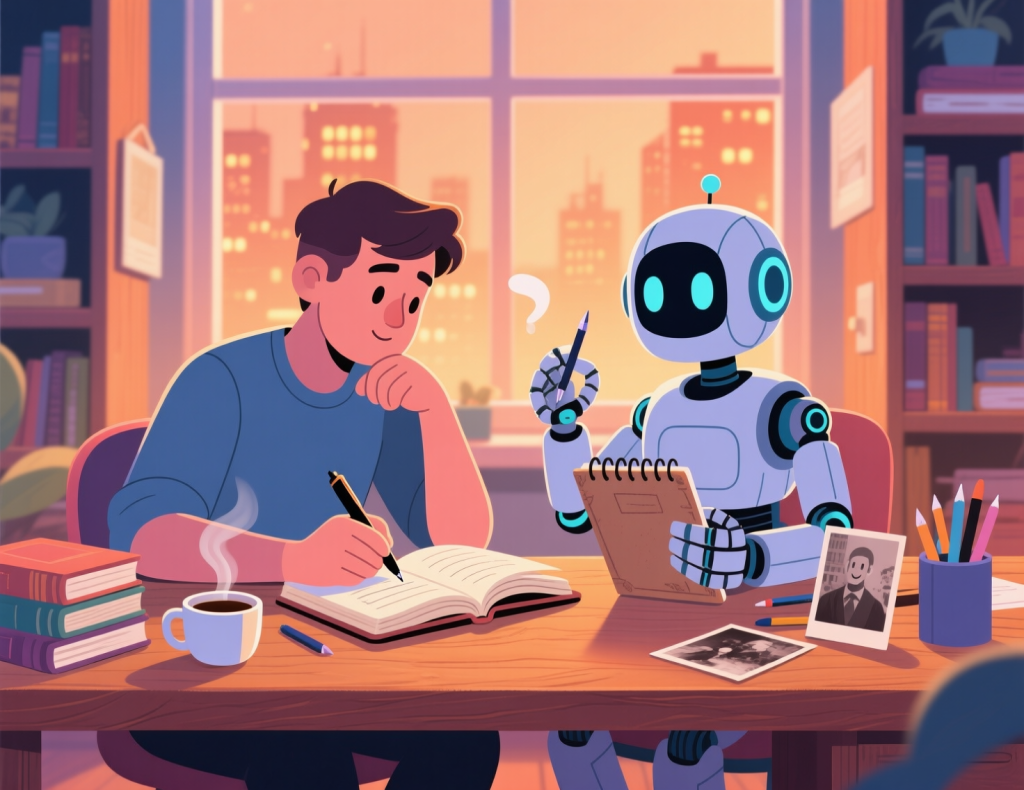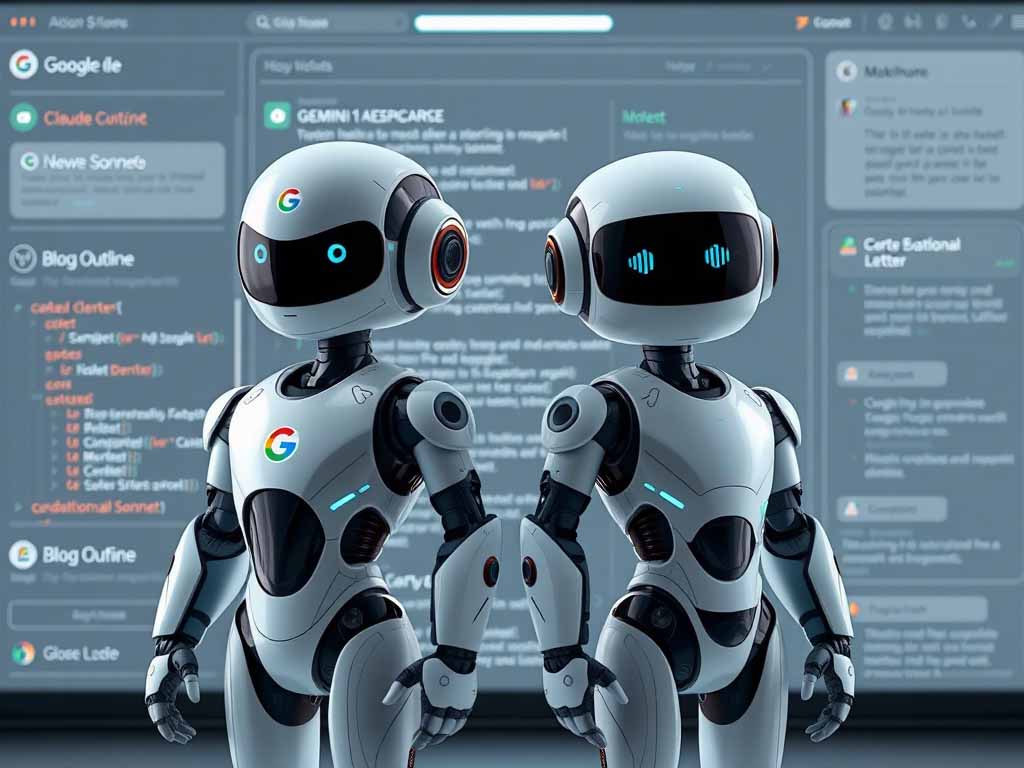Imagine this: You’re sipping coffee on a rainy Tuesday morning, scrolling through your favorite AI writing tool, and you think, “Hey, maybe my life story could be done by AI instead of me. After all, it types faster than I do, right?” Sounds tempting, doesn’t it? But then a question sneaks in: Can a machine actually capture you—your quirks, your inside jokes, the way your grandma laughs at your terrible puns?
This is the new frontier of AI and personal storytelling. Memoirs are deeply personal, intimate windows into who we are. And now, robots want a seat at the table. Let’s unpack this crazy idea, explore what works, what doesn’t, and maybe even have a laugh along the way.
The Rise of AI Ghostwriters
AI has been creeping into our lives quietly—at first it was spelling suggestions, then auto-completes, and now… entire paragraphs. Some tools claim they can “write like you” if you feed them enough of your style. Essentially, these AI ghostwriters promise that you can sit back while they craft your life story from your notes, social media posts, or even just a few prompts.
It’s a little like hiring a robot to do your homework in school. Sure, it might get the “A+,” but does it really understand what you were trying to say? Or how you felt when you got dumped at seventeen because your crush thought your sock collection was “weird”? (I mean, it’s a valid reason for heartbreak.)
The truth is, AI can mimic style to a degree, but it struggles with soul—the messy, unpredictable human moments that make memoirs compelling.
Why Voice Matters More Than Words
A memoir isn’t just a list of events. It’s the rhythm of your sentences, the pauses, the sarcasm, the sighs of frustration after your cat knocked over your laptop one too many times. AI might copy your sentence length or favorite phrases, but it doesn’t feel your laughter, your hesitation, your nostalgia.
Think of it like this: AI can paint a picture that looks like you—but it can’t capture the smell of your mom’s kitchen when she’s making dumplings on a Sunday morning. It can’t recall the nervous tick you had before your first job interview or the weird obsession with collecting novelty mugs in college.
These tiny human details—the ones you think are too small to matter—are what make a memoir sing. And they’re incredibly hard for a machine to invent authentically.
Can AI Learn to Imitate You?
Some people argue, “Well, if AI studies all your old writing, it will know your voice.” True… up to a point. AI can learn patterns: your favorite metaphors, the way you structure sentences, even your tendency to overuse ellipses when you’re being dramatic. But learning patterns isn’t the same as understanding context.
Humans are messy. We contradict ourselves, we change our minds, we lie a little in hindsight. Memoirs are honest but subjective. AI can mimic past patterns, but can it predict how you want to present your story? Can it understand the emotional weight behind telling your parents about your first heartbreak, or your pride when your kid scores their first goal? Not really.
At best, AI can act as a co-pilot, a helper for drafts, organization, or editing. It can speed up your writing, suggest plotlines, even polish your prose. But it’s not a replacement for the messy, beautiful, human storytelling that memoirs demand.
Real-World Examples
Some authors have experimented with AI ghostwriting. A few tried feeding decades of diaries into AI tools to see what memoir-like narratives would come out. The result? Interesting, yes. Personal? Sometimes. Human? Not quite.
For instance, one AI-generated memoir described a person’s high school years with perfect grammar and plausible events—but it completely missed the tiny, personal quirks that made those years unforgettable: the secret handshake with a best friend, the smell of the local bakery after exams, or the exact wrong way they tied their shoelaces before track practice.
It’s almost like AI is excellent at creating “someone’s life”, but not your life. And that distinction matters—especially if your readers are expecting your story, not a generic coming-of-age tale.
How to Use AI Without Losing Your Voice
Okay, don’t despair! AI isn’t the enemy. Here’s how to leverage it without turning your memoir into “Robot Writes My Life”:
- Idea Generator: Use AI to brainstorm chapter titles, plot points, or tricky transitional phrases.
- Editing Assistant: AI can help polish grammar and sentence flow, but don’t let it reword your stories entirely.
- Prompts & Outlines: Feed the AI notes about events and let it propose an outline—but inject your personal voice into every paragraph.
- Dialogue Coach: Want to make dialogue sound snappier? AI can suggest alternatives—but the choice of humor, sarcasm, or emotion should always be yours.
Think of AI as a powerful pencil—it can help you sketch faster, but the real artistry still comes from your hand.
The Emotional Side of Ghostwriting
There’s an emotional risk too. Memoirs are cathartic; writing them helps you process life, reflect on growth, and sometimes heal old wounds. If AI ghostwrites everything, you might get a “perfect” book, but you miss the therapeutic magic of writing your own story.
Your readers can sense authenticity. They want to laugh at your weird family traditions, cry at your triumphs, and cringe at your mistakes—not read something polished but soulless.
Final Thoughts: Ghostwriter or Co-Writer?
So, can AI nail your voice? The short answer: not completely. The long answer: it can be a brilliant co-writer if you use it wisely.
Use AI for support, not replacement.
Infuse personal quirks—the stuff only you know.
Keep the messy, human parts—they’re what make your memoir worth reading.
If you do it right, AI can save you hours, help you organize your life story, and even spark creative ideas—but your memoir will always sound human because only a human can tell a human story.



